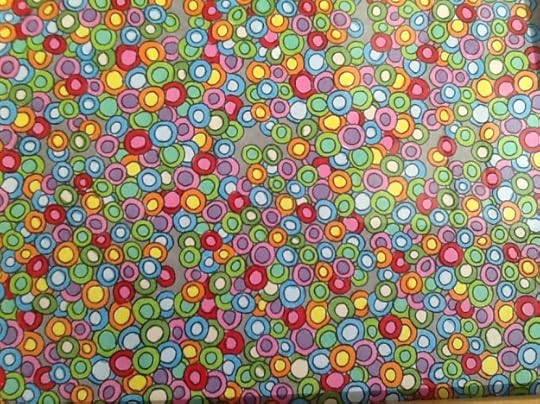The Morse Code History of Umpteen
Hello,
Part of the reason for this blog’s existence is funny sounding words. Fooling with them is how I got started with etymology. Umpteen definitely falls into that category but I would include it anyhow because of its Morse code history.
 I lost my morse code dots, these will have to do instead
I lost my morse code dots, these will have to do insteadI covered Morse code, and its inventor, in “How To Get Your Name in the Dictionary”, my book about eponyms. Morse code is a telegraphic system of communication where dots and dashes are combined to represent letters and numbers. The information is sent as a series of electrical signals. Short signals, represented by dots, are called dits while long signals, represented by dashes, are called dahs.
After launching, the combination of dits and dahs gained the nickname of iddy-umpty because of how it sounded. The dash was the umpty part and by 1905 had gained a meaning of an unknowable or large number. The idea was that we had twenty, thirty, forty then the unknown number would be umpty, rhyming with the others.
It didn’t take long for the umpty idea to creep into military slang where a term for a large number could be useful. By 1907 the ty ending had changed to be a teen ending (just like thirteen, fourteen, etc.). That gave us umpteen (many, a lot of) and it gained widespread use thanks the World War I army slang usage. We have been using umpteen ever since.

They say not to judge a book by its cover but I need you to do just that. If you liked the cover of my book, “Words Christmas Gave Us”, please vote for it for the Cover of the Month contest on AllAuthor.com today (closing 23 March 2025). I’ve made it through to the final 100 entries, but I still need your support and voting only takes a moment (if you voted before 7 March you can vote for a second time). Click here to vote. Thanks so much!
Until next time happy reading, writing, and wordfooling,
Grace (@Wordfoolery)
p.s. Want more Wordfoolery? Subscribe to the monthly newsletter “Wordfoolery Whispers”. Don’t forget to click on the confirmation email, which might hide in your spam folder.
p.p.s. this post contains affiliate links which make a small payment to the blog if you choose to purchase through them. #CommissionsEarned. Alternatively, you can use my digital tip jar to say thanks for this year’s words.



